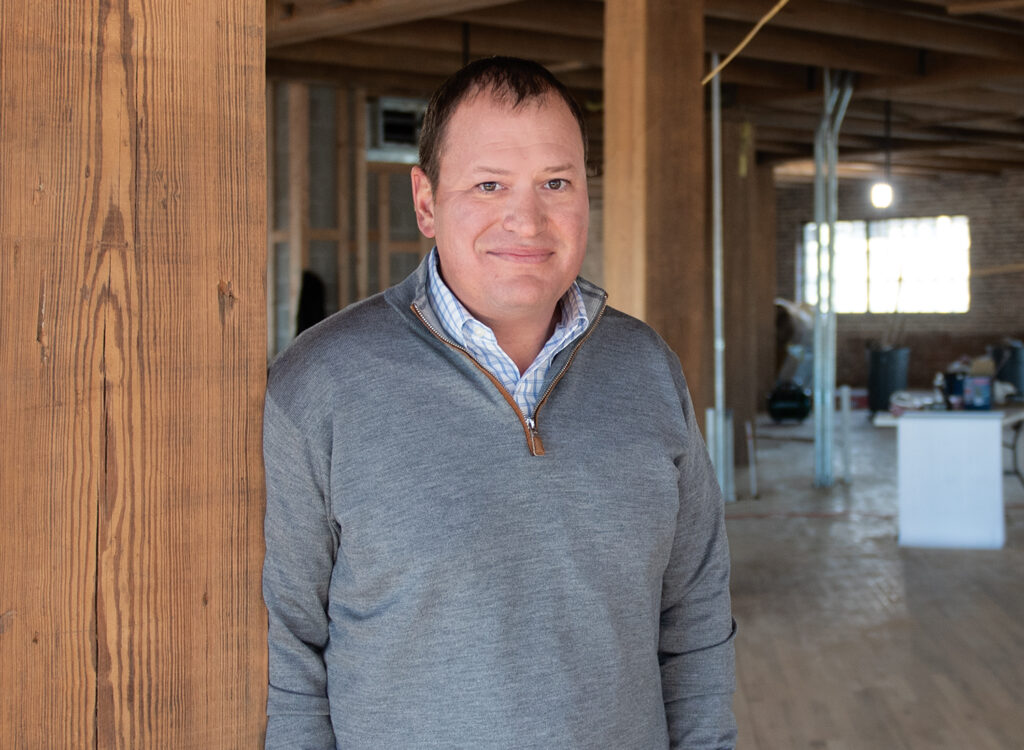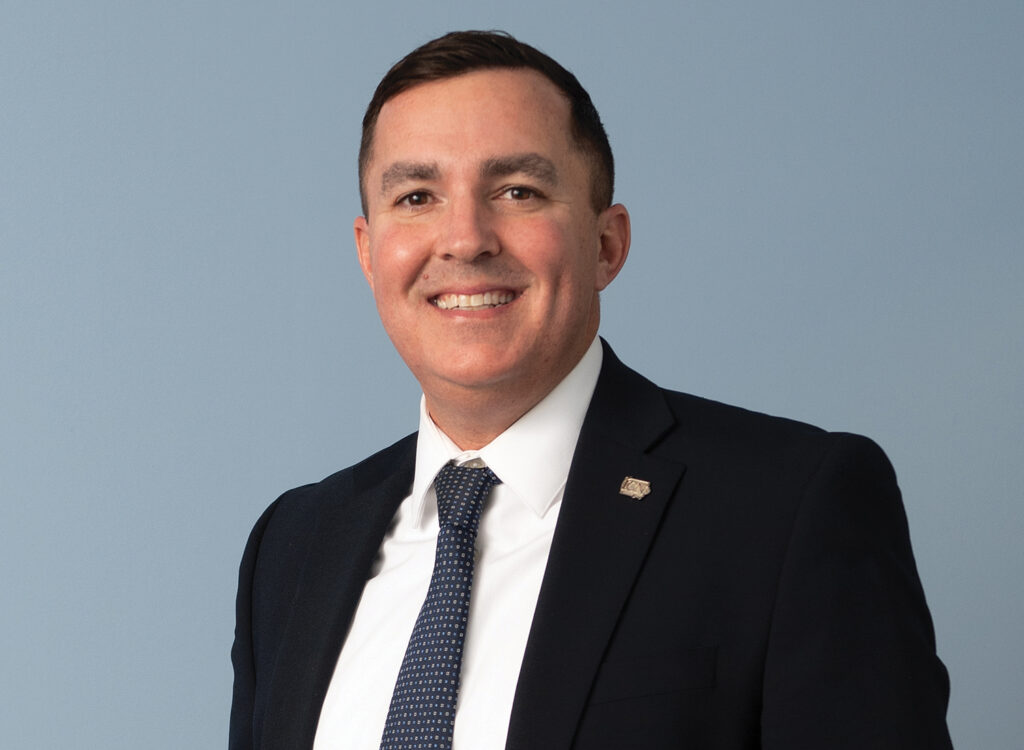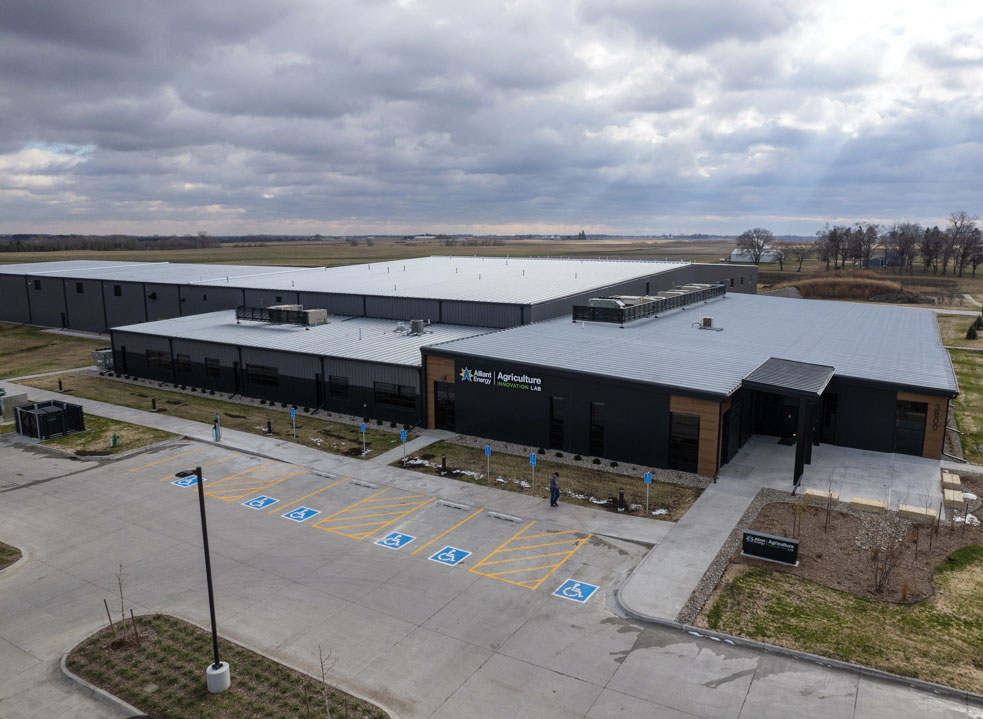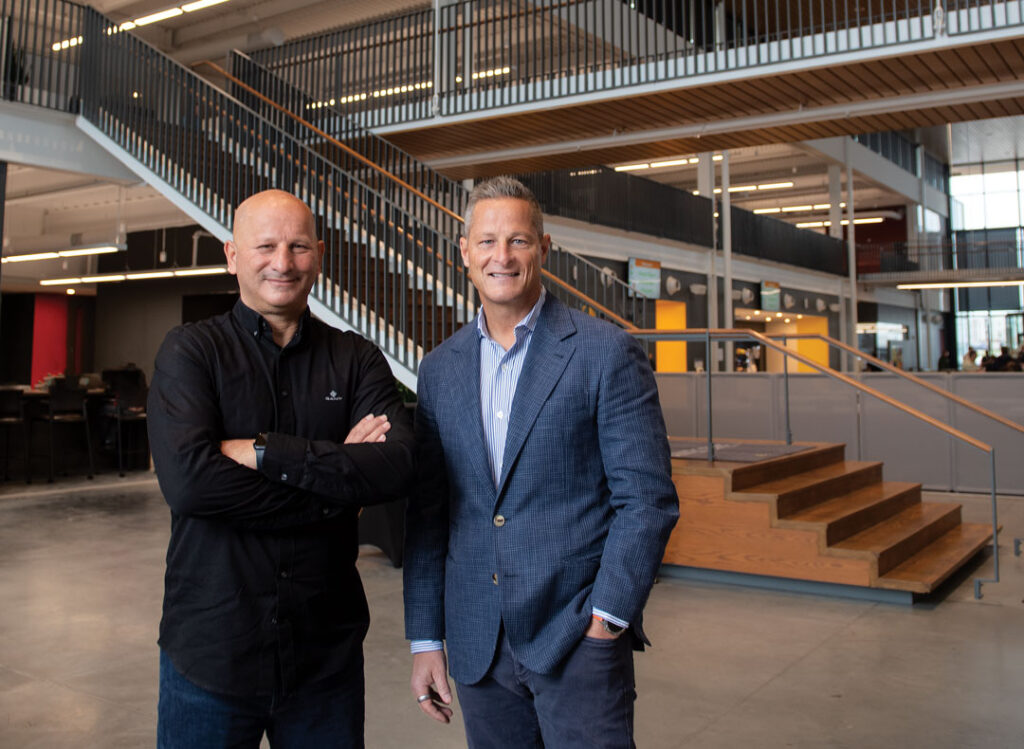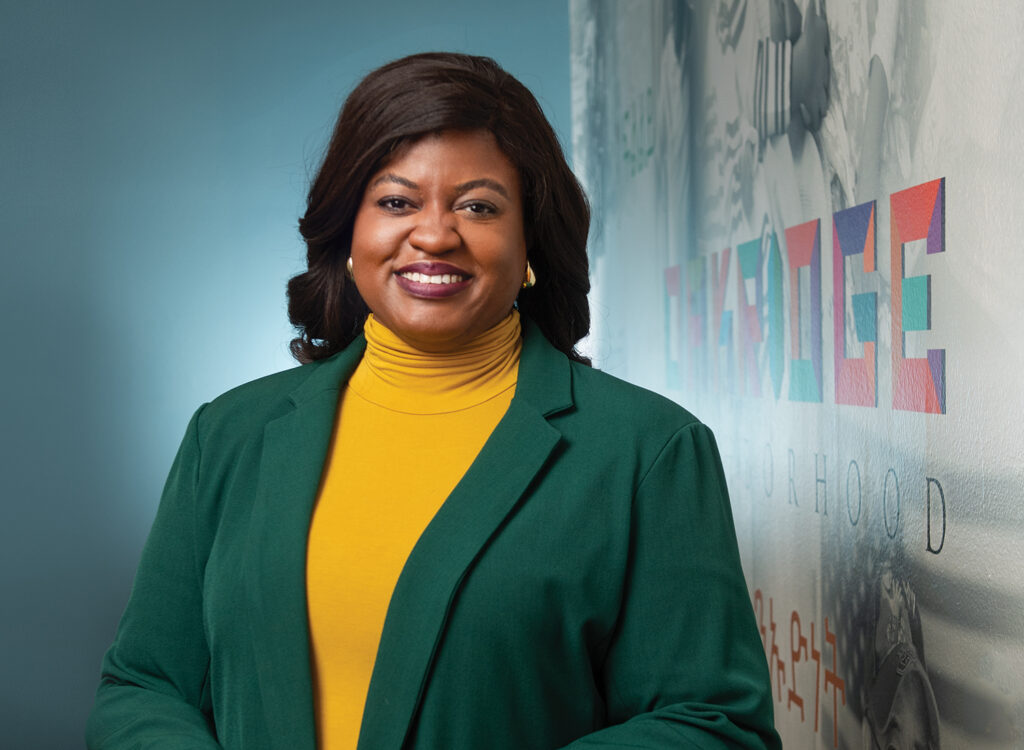Forty Under 40 Alumnus of the Year: David Stark
UnityPoint Health-Des Moines CEO reflects on two decades of leadership

JOE GARDYASZ Apr 7, 2021 | 1:51 pm
4 min read time
968 wordsBusiness Record Insider, Health and Wellness
In 2001, David Stark was just getting settled in as the chief operating officer of Iowa Lutheran Hospital in Des Moines when he was recognized through a relatively new awards program launched in 2000 by the Business Record — Forty Under 40.
Stark, who now leads a much larger piece of the same health system as president and CEO of UnityPoint Health-Des Moines, again joins an elite group of honorees this year, this time as the Business Record’s 2021 Forty Under 40 Alumnus of the Year.
For many years, Stark was among the youngest health care leaders in Iowa — he was 27 when he was named COO of Iowa Lutheran. In early 2003, at the age of 31, he was named the chief operating officer of Iowa Methodist Medical Center in Des Moines, the largest hospital of what was then called Iowa Health System. He took on that role in addition to his responsibilities as COO of Iowa Lutheran.
In a February 2003 interview with the Business Record, Stark acknowledged that he was relatively young to have been given such responsibilities, but said his age has no bearing on his abilities as an administrator. “Yeah, I am young,” the 31-year-old Stark said. “Leadership has no age.” (The archived Business Record story can be found here: bit.ly/3vPS74o)
Stark later led the charge in UnityPoint Health’s growth in the western suburbs, leading the certificate of need application in 2007 for a new West Des Moines hospital, and then overseeing construction of what is now Methodist West Hospital. He has also been president and chief operating officer for Blank Children’s Hospital and, most recently, executive vice president and chief operating officer for UnityPoint Health-Des Moines. He was promoted to his current position in July 2018 upon the retirement of his predecessor and former boss, Eric Crowell.
Stark and his wife, Becky, have four children — Kira, Ainsley, Cael and Marin. He began his career at Iowa Lutheran in 1995 as an administrative fellow, a management training program that grooms leaders for hospital administrative roles. The Fort Dodge native had just received a master’s degree in hospital administration from the University of Iowa.
He is a fellow in the American College of Healthcare Executives and serves as the current board chair of the American Heart Association Iowa. He is a past chair of the Iowa PBS Foundation and also serves on the board of the Iowa Hospital Association, the Greater Des Moines Partnership Executive Committee, and the boards of the Principal Charity Classic, Grand View University and Des Moines University. He is also a member of the Des Moines AM Rotary Club.
Two early mentors introduced Stark to hospital management, one of whom was his older sister, Julie Manas, who at the time was executive director of the Rehabilitation Institute of Chicago and is currently regional CEO for Ascension Health in Indianapolis. The second was then the CEO of Trinity Medical Center in Fort Dodge, Tom Tibbitts, a close friend of the Stark family.
“I’ve been fortunate to have many mentors,” Stark said. Among those mentors were two former UnityPoint Health-Des Moines chief executives — Eric Crowell and Crowell’s predecessor, Jim Skogsbergh.
Having at least one good mentor is a useful piece of advice that Stark has for any young leader, particularly those who have been recognized as a Forty Under 40. “With that recognition also comes great responsibility,” he said. “My advice to them is, prepare to be the mentor. You need to embrace that and pay it forward because other people have done it for you.”
Although Stark has led various pieces of UnityPoint Health over the years through many significant changes — among them a systemwide rebranding from Iowa Health System, a new West Des Moines hospital, the tumult of the Affordable Care Act, and shifts toward accountable care and value-based medicine — the coronavirus pandemic stands out as the biggest challenge yet that he has encountered.
“There were a lot of other big changes that we had as a health system over the years, but those were all planned,” he said. “The pandemic, no one had planned on that — it [happened] to us.”
One of the biggest themes that came through for Stark, particularly during the earliest uncertainties of the pandemic, was the creativity and resilience of the health care teams as they rose to meet each challenge.
“There are so many stories,” he said. “One that occurred early on was the shortage of personal protective equipment. I remember the creativity of our team to make face shields out of hundreds of old transparency sheets that we had laying around that used to be used for overhead projectors.”
(Before PowerPoint presentations, there were actually tabletop devices used into the early 1990s in which businesspeople would prepare transparent slides that were projected with a bright light onto a conference wall screen.)
Stark, who serves as a role model of civic engagement with multiple responsibilities, considers civic leadership a quintessential part of being a good leader. “I think it’s critical. I would say it’s a core competency of any leader — you truly have not fulfilled your duty if you aren’t involved. It’s like paying our civic rent. There are so many things that volunteer organizations do for our communities — we’ve got to be involved with volunteer leadership.”
The past year has brought Greater Des Moines together more than any other time period that Stark can recall.
“I can’t underscore enough the level of community collaboration I’ve witnessed in the past year,” he said. “When I think of the collaboration that we’ve had as a health system with MercyOne, Broadlawns and others — I can’t tell you how great it is to have organizations that work together like that. I’m really proud of that.”




